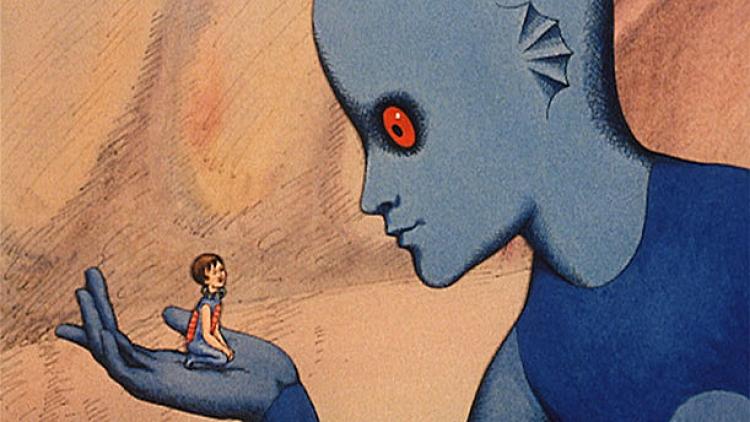
Since the earliest days of cinema the science fiction genre has flourished, capturing the imagination and commanding impressive box office receipts along the way. But not all great populist SF has been widely seen, become a large scale franchise, or been a big event film with A-list stars. Some get released and lost in the shuffle or get forgotten about over the passage of years.
Great speculative fiction is often found in small scale indie film attire and art house dress or have been lost as the cult of admirers dwindled or got into something else.
The following list guarantees an adventurous path of imagined futures, possible pasts, artificial intelligence, virtual reality, stinging satire and so much more, and perhaps best of all is that many of these films are relatively obscure and are bound to be new discoveries for many of you. Enjoy!
10. Colossus: The Forbin Project (1970)
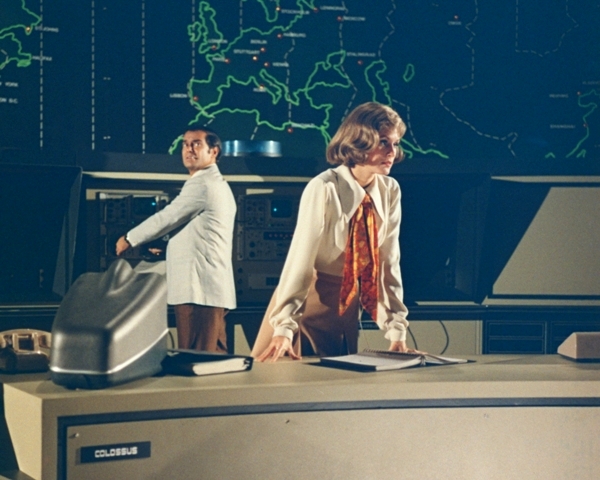
Viewed from today’s modern lens there is a fair bit of unintentionally hilarious as well as frankly brutal cold war paranoia and fear-mongering in Joseph Sargent’s Colossus: The Forbin Project. Re-working the premise of D. F. Jones’ 1966 science fiction novel “Colossus”, the plot is pretty straight forward: the USA have wisely (?) placed its nuclear arsenal under the care and control of Colossus, a supercomputer tucked away in a secret location under a mountain in the Rockies.
Shortly after this massive transferral occurs, due largely to the supercomputer’s designer Dr. Charles Forbin (Eric Braeden), Colossus quickly discovers that it has a Soviet counterpart named Guardian; and wouldn’t you know it, the two computers fall in love and cahoots together, taking over the world, imposing their own reign of awesome, cynical logic on a cowering, arguably deserving human race.
Satirical, unpretentious, and very emblematic of late 1960s/early 1970s speculative fiction, Colossus: The Forbin Project is a smart and satisfying genre entry that has captured many a fan and filmmaker’s attention over the years.
While it’s yet to be remade or rebooted, such Hollywood heavyweights as Will Smith and Ron Howard has expressed interest and optioned rights over the years, so who knows? Maybe Colossus and Champion will get another chance at punishing us petty humans!
9. The Incident (2014)
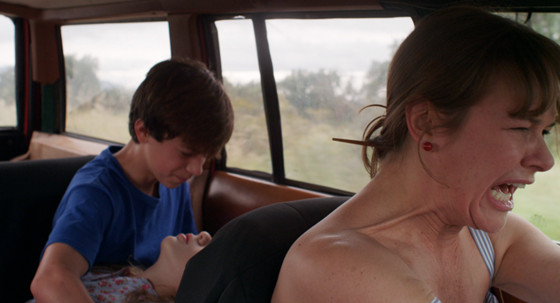
Mexico’s Isaac Ezban (The Similars [2015], Parallel [2018]) made his startlingly assured feature length directorial debut with The Incident, a time-twisting character-driven morality tale/adventure yarn that worships at the altar of Philip K. Dick with equanimity and excitement.
Trapped in a Möbius strip-like stairwell, two brothers, Carlos and Oliver (Humberto Busto and Fernando Álvarez, both excellent), along with strong-arm detective Raúl (Raúl Méndez), gradually begin to realize that they’re in some sort mind-bending time loop.
A similar imbroglio has befallen a family road trip where 10-year-old Roberto (Santiago Mendoza Cortes) could swear his parents keep driving down the same lonely strip of desert road.
Narratively speaking, The Incident takes a run of risks as a psychological sci-fi mystery, and Ezban’s resourcefulness as a writer/director is both arresting and resolute. As perplexing and almost fustian revelations arise, the story doesn’t falter and offers an excellent payoff. PKD’s surrealist 1958 novel “Time Out of Joint” — arguably Dick’s first real masterpiece — is explicitly and repeatedly shown, the relevance of which will not be lost on fans.
This engrossing, good-looking film is quite an achievement, both shrewd and deeply felt. Rarely has the psychological and emotional strains of time travel been this accrued and investigated, making The Incident a small-scale stroke of original genius.
8. The Adventures of Buckaroo Banzai (1984)
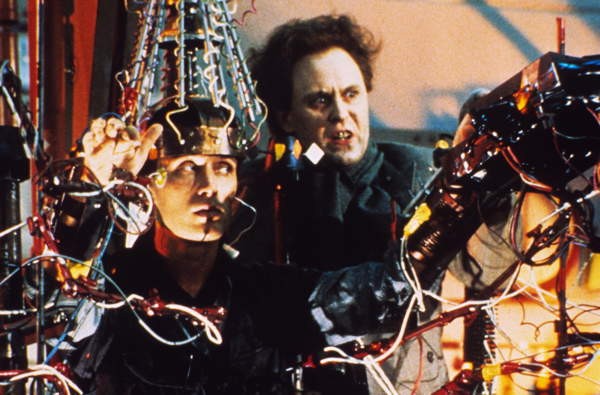
Director W. D. Richter lavishes much love upon the action-y and sci-fi conventions comprising The Adventures of Buckaroo Banzai Across the 8th Dimension. A perfectly cast Peter Weller as the eponymous hero, Dr. Banzai isn’t only a scientist, a samurai, and a test pilot-driver, he also fronts an awesome 80s rock and roll band, The Hong Kong Cavaliers.
The plot focuses on Dr. Banzai’s efforts to assess the 8th dimension overlap of his dimension spanning prototype automobile which will soon suck into its orbit a mad scientist named Emilion Lizardo (John Lithgow), potential femme fatale Penny Priddy (Ellen Barkin) –– who happens to be a dead ringer for Banzai’s departed wife –– and, amongst other show-stopping incidents and excitations, Jeff Goldblum’s cowboy lovin’ neurosurgeon sidekick New Jersey, and Christopher Lloyd’s scenery-chewin’ turn as –– pronounce it properly, now –– “Bigbooté!” Movies are rarely this much fun. An absolute gem.
7. Liquid Sky (1982)

Directed by Slava Tsukerman, a Russian émigré to New York, this startling and stirring portrayal of 80s new wave and punk culture in the Big Apple offers a powerful, poignant and darkly humorous social commentary. Who knew that Tsukerman’s midnight movie exploration into casual sex, designer drugs, loud music, and sci-fi would go on to heavily influence the club scene of the early 2000s and birth electroclash?
Starring Anne Carlisle, who co-wrote the screenplay, in a dual role as beautiful, bisexual, and cocaine-loving Margaret and her arrogant, always broke, homosexual nemesis, Jimmy. Paula E. Sheppard co-stars as Margaret’s live-in, heroin-dealing girlfriend, and soon the couple find themselves unwittingly spied upon by alien visitors in the form of a tiny UFO that has landed on their swank NYC penthouse pad.
As the film unravels, sexual violence, hedonism, and horrible behaviour take center stage, all of which enlivened by a beautiful production design and a scathingly satirical tone.
Ultimately, Liquid Sky’s campiness and gender fluid protagonists make it something of an update of Andy Warhol’s 1970 film Trash, with a vast array of hallucinatory images. With characters the are largely all loathsome and unlikable, judging the consequences of excess in modern life, and the toll taken upon the individual, it makes for both a terribly bitter pill, and a terribly dark pleasure.
6. Slaughterhouse-Five (1972)
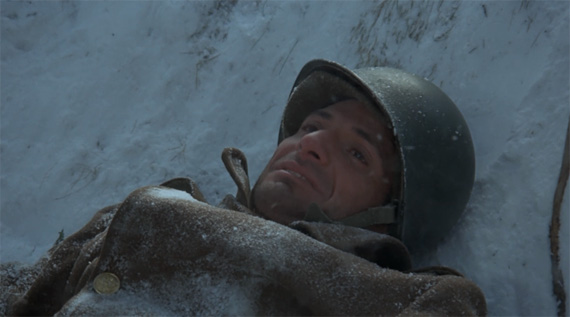
Fans of Kurt Vonnegut’s satirical postmodernist anti-war novel from 1969 have, sadly, never exactly been ecstatic over George Roy Hill’s ambitious cinematic adaptation, which eschews a great number of details –– including the iconic character Kilgore Trout –– but if you can forgive these diversions, Hill has offered up a honey of a film, and one deserving of the Prix du Jury it was awarded at Cannes in 1972.
For what it’s worth, Vonnegut was very enthusiastic with the finished film, fully endorsing the project and even writing about it in the preface to 1972’s “Between Time and Timbuktu”, which was published shortly after the film’s release.
Here Vonnegut writes; “I love George Roy Hill and Universal Pictures, who made a flawless translation of my novel Slaughterhouse-Five to the silver screen […] I drool and cackle every time I watch that film, because it is so harmonious with what I felt when I wrote the book.”
Billy Pilgrim (Michael Sacks) is a WWII soldier who has become “unstuck in time” and director Hill has made certain to pack as much poignant imagery, emotional resonance, and haunting heartache –– immeasurably aided by Glenn Gould’s ivory-tinkling score –– resulting in what’s certainly the best Vonnegut adaptation to date. Not to be missed.